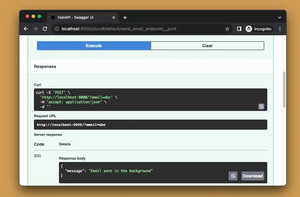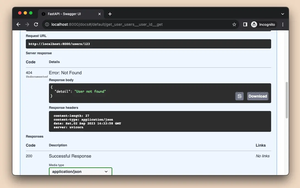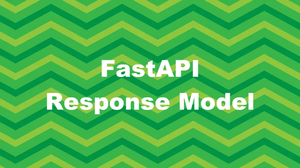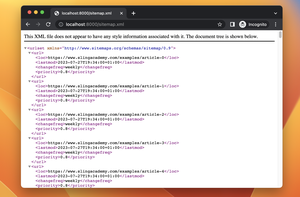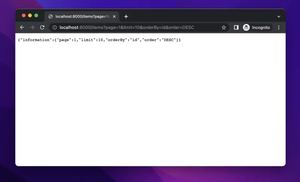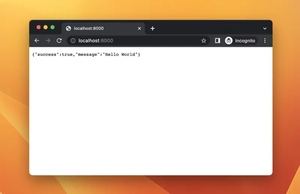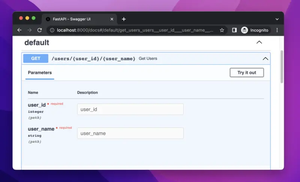When working with FastAPI, developers may encounter various errors, and one such problem is FastAPI Error loading ASGI app: Could not import module 'api'. This tutorial will guide you through the common causes of this error and provide multiple solutions to overcome it.
Solution 1: Validate Module Existence
Description: A common reason for the import error is the absence of the api module in the application directory. You must ensure that the intended module exists and is correctly named.
- Check if the
api.pyfile or theapidirectory with an__init__.pyfile is present in your project root. - Verify the module’s name; names are case-sensitive and should match the import statement.
- If the module does not exist, create a new file or folder with the necessary FastAPI code in it.
Code Example:
from fastapi import FastAPI
app = FastAPI()
@app.get("/")
def read_root():
return {"Hello": "World"}
Advantages: This is a straightforward check that can quickly resolve the issue without any significant changes to the project.
Limitations: If the module does exist, the error may be caused by a more complex issue that this solution does not address.
Solution 2: Correct PYTHONPATH Setting
Description: Another cause of the error may be that Python does not know where to look for the api module. Visually check if your PYTHONPATH is set correctly in your environment to include the directory where the api module is located.
- Locate your project root directory.
- Set the PYTHONPATH environment variable to include your project’s root.
- Proceed to run your FastAPI app again.
To set the PYTHONPATH in a Unix-like operating system, use:
export PYTHONPATH="$PYTHONPATH:/path/to/your/project"For Windows:
set PYTHONPATH=%PYTHONPATH%;C:\path\to\your\projectAdvantages: Correcting the PYTHONPATH can provide a comprehensive solution, ensuring that all imports can be resolved by Python.
Limitations: This requires knowledge of environment variables and may not be suitable for beginners. Additionally, it must be set appropriately for each new terminal session or configured permanently in the system.
Solution 3: Check for Circular Imports
Description: A circular import can happen when two or more modules depend on each other to function. This results in an error because neither module can be fully imported without the other. Identifying and restructuring the code to remove circular dependencies can resolve the error.
- Review your
apimodule and any other modules it imports to identify circular references. - Reorganize code to remove circular dependencies, potentially by combining modules or refactoring common dependencies into a separate module.
- Once all circular imports are resolved, run your FastAPI app again.
This type of error requires reviewing and rewriting affected code. An example fix might be:
# api.py
from fastapi import FastAPI
from .dependencies import some_function # Adjusted import to reduce circularity
app = FastAPI()
... # Other part of API implementation
Advantages: Resolving circular imports improves the code’s architecture and reduces future complications.
Limitations: This solution might demand a substantial refactor of the code, and identifying circular imports can sometimes be difficult.
Conclusion
The error FastAPI Error loading ASGI app: Could not import module 'api' typically indicates a problem with importing the specified module. Top solutions involve ensuring module existence, correcting your PYTHONPATH, and checking for circular imports. By systematically applying these solutions, you should be able to resolve the import error and get your FastAPI project up and running smoothly.
